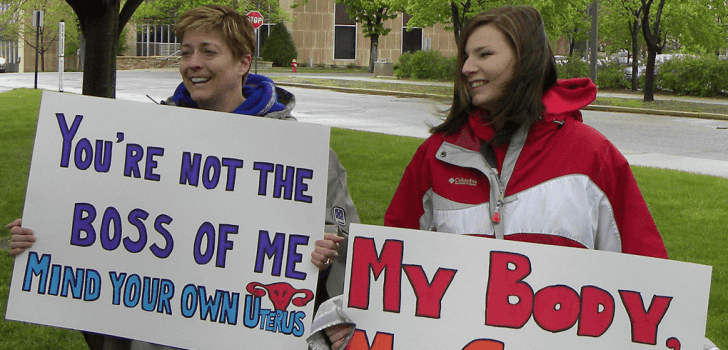A Northern Ireland high court judge ruled on Monday that an almost outright ban on abortion violates the human rights of girls and women, including victims of rape and incest.
The historic decision may lead such victims to have abortions in the hospitals of Northern Ireland, something that has never been allowed before. The limited ruling also allows women whose fetuses suffer from fatal abnormalities to obtain abortions in the region.
Northern Ireland’s attorney general is considering whether to appeal the judgment.
Currently, under a 19th-century law, local medical providers can receive imprisonment for performing abortions, even under the conditions of rape, incest and fatal fetal abnormalities. Abortions are only allowed if the mother’s life or long-term health is directly under threat.
In his groundbreaking ruling, Justice Horner told the high court in Belfast that, “In the circumstances, given this issue is unlikely to be grasped by the legislature in the foreseeable future, and the entitlement of citizens of Northern Ireland to have their convention rights protected by the courts, I conclude that the article eight rights of women in Northern Ireland who are pregnant with fatal foetal abnormalities or who are pregnant as a result of sexual crime are breached by the impugned provisions.”
Les Allamby, the leader of the Northern Ireland Human Rights Commission (NIHRC) responded favorably to the decision. “Today’s result is historic, and will be welcomed by many of the vulnerable women and girls who have been faced with these situations. It was important for the commission to take this challenge in its own name, in order to protect women and girls in Northern Ireland and we are delighted with the result.”
This past summer, several groups and individuals petitioned the Belfast high court to hear the case. Included was Sarah Ewart, who told her story that she was required to travel to London to access to abortion services in 2013 after her baby was diagnosed with a severe brain malformation.
In Ewart’s case, the NIHRC argued that forcing women to leave Northern Ireland and their support systems amounted to inhuman, cruel and degrading treatment and violated the basic human rights of women and girls.
Ewart was happy with the landmark decision, stating that, “I, and many women like me, have been failed by our politicians. First, they left me with no option but to go to England for medical care. Then, by their refusal to change the law, they left me with no option but to go to the courts on my and other women’s behalf. I am an ordinary woman who suffered a very personal family tragedy, which the law in Northern Ireland turned into a living nightmare.”
Northern Ireland’s Department of Justice has six weeks to decide if it will appeal the ruling.
